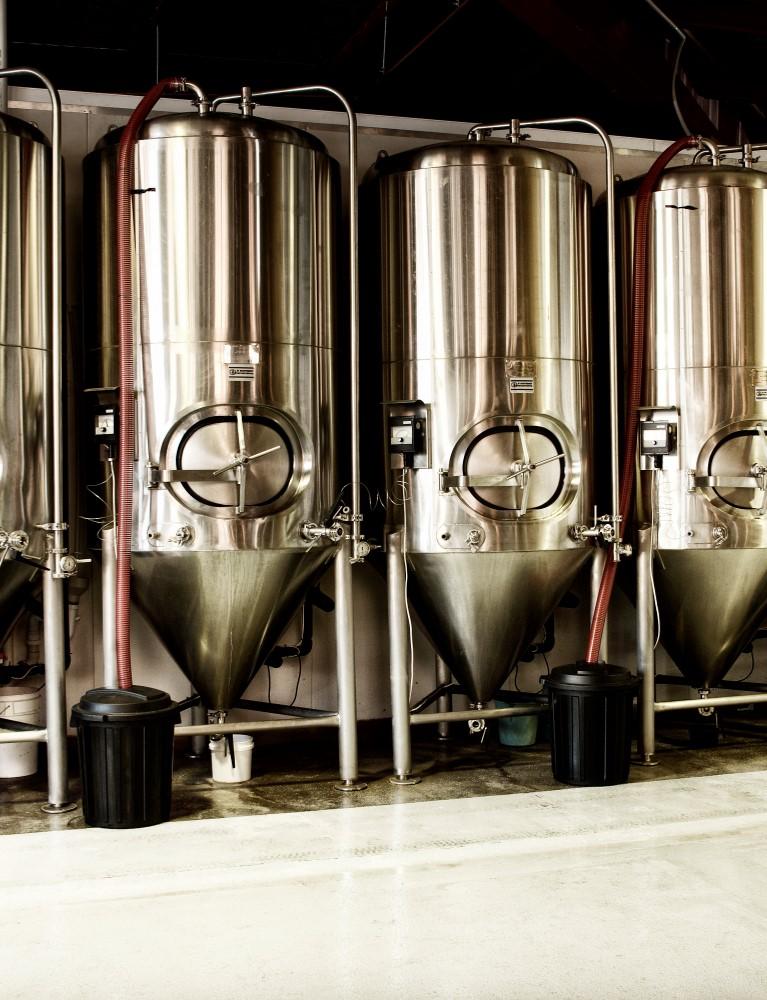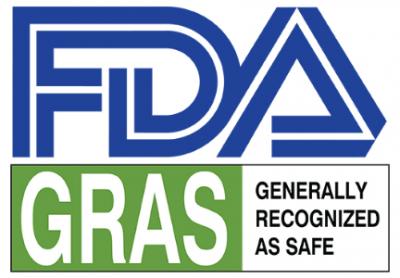26 Financial, Compliance, and Logistics Terms Every Viable Beverage Business Needs to Learn

Keeping your supply chain logistically sound and consistently compliant while monitoring your financial performance is the best way to ensure your product is profitable and efficiently reaching your customers. Here is a list of terms to know as you manage the finances, compliance, and logistics for your beverage business.
FINANCIAL
Cashflow Statement
The statement of cash flows, or cash flow statement summarizes the amount of cash and cash equivalents entering and leaving a company. The cash flow statement measures how well the company generates cash to pay its debt and fund its operating expenses. The cash flow statement complements the balance sheet and income statement and is a mandatory part of a company's financial reports. The main components of the cash flow statement are cash from operating activities, cash from investing activities, cash from financing activities, and disclosure of noncash activities. The cash flow statement is an important tool for helping investors determine whether a company is on solid ground from a financial perspective.
Credit Analysis
Investors perform credit analysis on companies to measure the company’s ability to meet its debt obligations. Various tools such as financial ratios, cash flow analysis, trend analysis, and financial projections are used to judge a company’s ability to pay its debt. The goal of the credit analysis is to identify the level of default risk associated with investing in that company. Leveraging this knowledge will help hedge your company against cashflow risks and help you avoid paying vendors before you get your cash in the door from customers.
Gross Profit/Margin
Gross profit is a company's total sales revenue minus its cost of goods sold (COGS). To get your Gross margin, you would divide gross profit by total sales revenue, expressed as a percentage. The gross margin represents the percent of total sales revenue that the company retains after incurring the direct costs associated with producing the goods and services it sells. The higher the percentage, the more the company retains on each dollar of sales. Companies use gross margin to measure how their production costs relate to their revenues. If a company's gross margin is falling, it may look for processes that allow it to cut costs for labor or materials, or it may decide to increase prices to boost revenue.
Inventory Management
Inventory management is the process of ordering, storing, and using a company’s inventory including raw materials, components, and finished products. Inventory management includes knowing when to restock certain items, what amounts to purchase or produce, what price to pay, and when to sell and at what price. The goal is to optimally utilize and minimize the risk around one of a company’s most valuable assets – its inventory. Managing inventory effectively is critical for a successful business.
Inventory Turns
Inventory turns measure the number of times inventory is sold or used in a defined time period. The equation for inventory turnover equals the cost of goods sold divided by the average inventory. The resulting ratio shows how many times a company’s inventory is sold and replaced over a period. The days in the period can then be divided by the inventory turnover formula to calculate the number of days it takes to sell the inventory on hand or “inventory turnover days.” Monitoring inventory turns is an essential part of inventory management.
Order Management
Order management is the process of efficiently tracking and fulfilling sales orders. Order management includes the people, processes, and suppliers that create the customer experience. Order management starts when a customer places an order and continues through to fulfillment and shipping. An order management system (OMS) automates and streamlines order processing for businesses.
COMPLIANCE
Authorized Health Claim
Authorized health claims are supported by significant scientific agreement (SSA) among qualified experts. In order for the FDA to authorize a health claim, there must be scientific evidence to characterize a relationship between a substance and a disease or health-related condition. All health claims must undergo review by the FDA. You can find authorized health claims that meet the Significant Scientific Agreement (SSA) Standard on the FDA website.
AP
An Alternating Proprietorship (AP) is a term used to describe an arrangement in which two or more people take turns using the physical premise of a brewery. The proprietor of an existing brewery, the “Host Brewery,” agrees to rent space and equipment to a new “tenant brewer.” Alternating brewery proprietorships allow existing breweries to use excess capacity and give new entrants to the beer business an opportunity to begin on a small scale, without investing in a premises and equipment.
Basic Permit
Anyone seeking to engage in the business of distilling, warehousing and bottling or processing distilled spirits, producing or blending wine, wholesaling or importing distilled spirits, wine, or malt beverages as defined in the Federal Alcohol Administration Act (FAA Act) in the United States, must apply for a Federal Basic Permit. The permit is issued by the Alcohol and Tobacco Tax and Trade Bureau (TTB) and authorizes a person to purchase for resale the specific commodity: to receive or to sell, offer or deliver for sale, contract to sell or ship, interstate or foreign commerce.
Brewer’s Notice
Anyone brewing beer for sale must first qualify with TTB by submitting a Brewer's Notice application. The permit is for a specific location. You must either have a brewery or operate under an alternating proprietorship (AP). You may not operate your brewery until your Brewer’s Notice is approved.
COLA
A Certificate of Label Approval (COLA) is required for all wine, distilled spirits, and beer distributed in the United States including any alcoholic beverage imported into the country. The application must be submitted to the TTB’s Advertising, Labeling, and Formulation Division and approved prior to use. Prior to applying for, or obtaining COLAs, the TTB must have issued a basic permit to a distilled spirits plant or importer applicant, a brewer’s notice to a brewery applicant, or approval to operate a bonded wine cellar or tax-paid wine bottling house to a winery applicant. Applicants filing for label approval for the first time will need to provide a copy of their approved TTB permit along with their COLA application. The TTB does not require wholesalers to retain copies of COLAs for the products stored on their premises. Only when a wholesaler also serves as an importer, and purchases alcoholic beverages directly from a foreign supplier, will the wholesaler need to hold COLAs for the imported products and maintain copies of those COLAs on its premises.
FIDS
The Flavor Ingredient Data Sheet (FIDS) is a spreadsheet that includes information about certain ingredients used in compounded flavors. A FID sheet must be submitted to the TTB with your formula if you use a compounded flavor (consisting of multiple ingredients) that was purchased from a flavor manufacturer. If the product consists of a single ingredient, only a spec sheet is required.
Formula
A formula (also called a commercial formula) is a recipe for a beverage including a complete list of ingredients used to make it and a step-by-step description of how it’s made. Some products submitted through the TTB require formula approval both initially and when modifications are made. For example, whenever you modify a malt beverage and it results in a change in color or taste, a new formula submission is required. Adding fermentable material to the wort, adding concentrates or other flavors to a finished malt beverage, using artificial sweeteners, and using artificial colors to a finished malt beverage are all instances when a formula should be submitted.
GRAS
An acronym for Generally Recognized as Safe. This is the language used by the U.S. Food & Drug Administration (FDA) to label certain ingredients or additives as safe for their intended use by experts. GRAS ingredients/additives are exempt from the Food, Drug, and Cosmetic Act (FFDCA) which requires all non-GRAS ingredients to be approved by the FDA, which can be a long, time-consuming process.
Nutrition Fact Label
The Nutrition Facts Label is required by the Food and Drug Administration (FDA) on most packaged foods and beverages. The Nutrition Facts Label provides detailed information about a food's nutrient content, such as the amount of fat, sugar, sodium, and fiber it has. In 2016, the FDA announced the new Nutrition Facts label for packaged foods to reflect new scientific information, including the link between diet and chronic diseases such as obesity and heart disease.
Qualified Health Claim
Qualified health claims don’t have the requirements for SSA but are validated by a significant amount of scientific evidence. When using “qualified” health claims, you must include a disclaimer or qualifier that makes the amount of scientific evidence clear so as not to mislead consumers. All health claims, whether SSA or qualified, require that a petition be submitted to FDA. Food manufacturers can petition the agency to consider exercising enforcement discretion for the use of a qualified health claim. The FDA does not “approve” qualified health claim petitions. For a QHC petition with credible scientific evidence, the FDA issues a Letter of Enforcement Discretion including specific claim language that reflects the level of supporting scientific evidence and details of all enforcement discretion factors under which the FDA will not object to the use of the QHC.
Supplement Facts Label
The Supplement Facts Label is used for products considered to be dietary supplements. Dietary supplements can make functional claims, general well-being claims, or nutrient deficiency claims not pre-approved by the FDA. If making these claims, the brand owner must have substantiation that the claim is truthful and not misleading. For liquid supplements, the liquid must meet 100% of the label claims. There are no regulations on the amount of overages that are allowed in dietary supplements. Many dietary supplements add 150% overages in their product to ensure that the liquid still meets the label claim at the end of shelf life.
Trade Name
Trade names are the official names under which companies do business, and they are used to identify companies, businesses, or partnerships, not goods or services. A trade name is not usually considered a trademark or service mark and is therefore not entitled to protection under trademark laws. In the case of brewers, a trade name is filed under an amended Brewers Notice with the TTB and can be used instead of the facility name in “Brewed and Bottled By” statements. The Brewery can trade product as that trade name.
TTB
The Alcohol and Tobacco Tax and Trade Bureau, also known as the Tax and Trade Bureau and frequently shortened to TTB, is a bureau of the United States Department of the Treasury, that regulates and collects taxes on trade and imports of alcohol, tobacco, and firearms within the United States.
LOGISTICS
Freeze Embargo
If temperatures are below freezing for an extended period of time, some carriers will put into effect a freeze embargo until they deem it warm enough to ship. This may raise freight cost by forcing companies to use a more expensive carrier or shipping method to ensure timely delivery with freeze protection.
Freeze Protection
Freeze Protection, or Protect from Freeze, is a service offered by some freight carriers to ensure that the product is kept above the temperature which can damage the product. Depending on the carrier, product, and terminals, a variety of methods are used to ensure freight is not damaged by low temperatures. LTL carriers use weather monitoring, temperature-controlled compartments or trailers, and/or protective blankets to protect freight from damage from the cold. If a product is shipped without freeze protection and it is damaged due to freezing, the carrier will not accept liability and will not approve freight claims. LTL carriers also use freeze embargos if temperatures are below freezing and will sometimes limit pick-up days to Monday and Tuesday to prevent freezing.
Freight Classes
Carriers will generally charge for freight based on weight and dimensions of the items being shipped. The National Motor Freight Traffic Association, Inc. publishes the National Motor Freight Classification® (NMFC®) which is a standard that allows for determining of freight classes for the comparison of different commodities and products being shipped. Every commodity being shipped falls into one of 18 different freight classes which are represented by numeric numbers ranging from 50 – 500. The aspects that determine freight class are density, stow-ability, handling, and liability.
FTL
Full truckload (FTL) shipping means that a shipment will take up an entire truck. FTL shipments are made when there are ten or more pallets that need to ship, or if the shipment is high-risk, or under tight time constraints.
LTL
Less than truckload shipping or less than load (LTL) is the transportation of relatively small freight that will not take up an entire truck. In between parcel carriers and full truckload carriers, LTL shipments typically weigh between 151 and 20,0000 lbs. The main advantage to using an LTL carrier is that a shipment may be transported for a fraction of the cost of hiring an entire truck. With an LTL shipment, you only pay for the space on the truck you need. LTL freight shipments will often take a bit longer to reach their destinations, due to the multiple shipments on board creating frequent stops.
Lumper
A lumper is a person who assists a trucking company owner-operator in the loading and unloading of property. Often there is a fee charged to the driver or trucking company for this assistance. Lumpers are often used at food warehousing companies and grocery distributors. A lumper charge is a fee charged to the carrier when a shipper utilizes third-party workers to help load or unload the trailer contents.
Reefer Truck
A reefer truck is a truck or van that has a refrigerated unit built either directly on the frame or is transported by trailer. It's refrigerated by diesel-powered generators and liquid carbon dioxide, or CO2. Reefer trucks have warning systems that monitor the changes in temperature, allowing the driver to take corrective measures. Reefer service is generally either Reefer LTL or FTL.
Sound finance, compliance, and logistics practices are fundamental to a strong beverage business. Reach out to BevSource with your questions and challenges. We specialize in supporting beverage brands with the connections and resources to help them succeed.
Looking to learn more?
